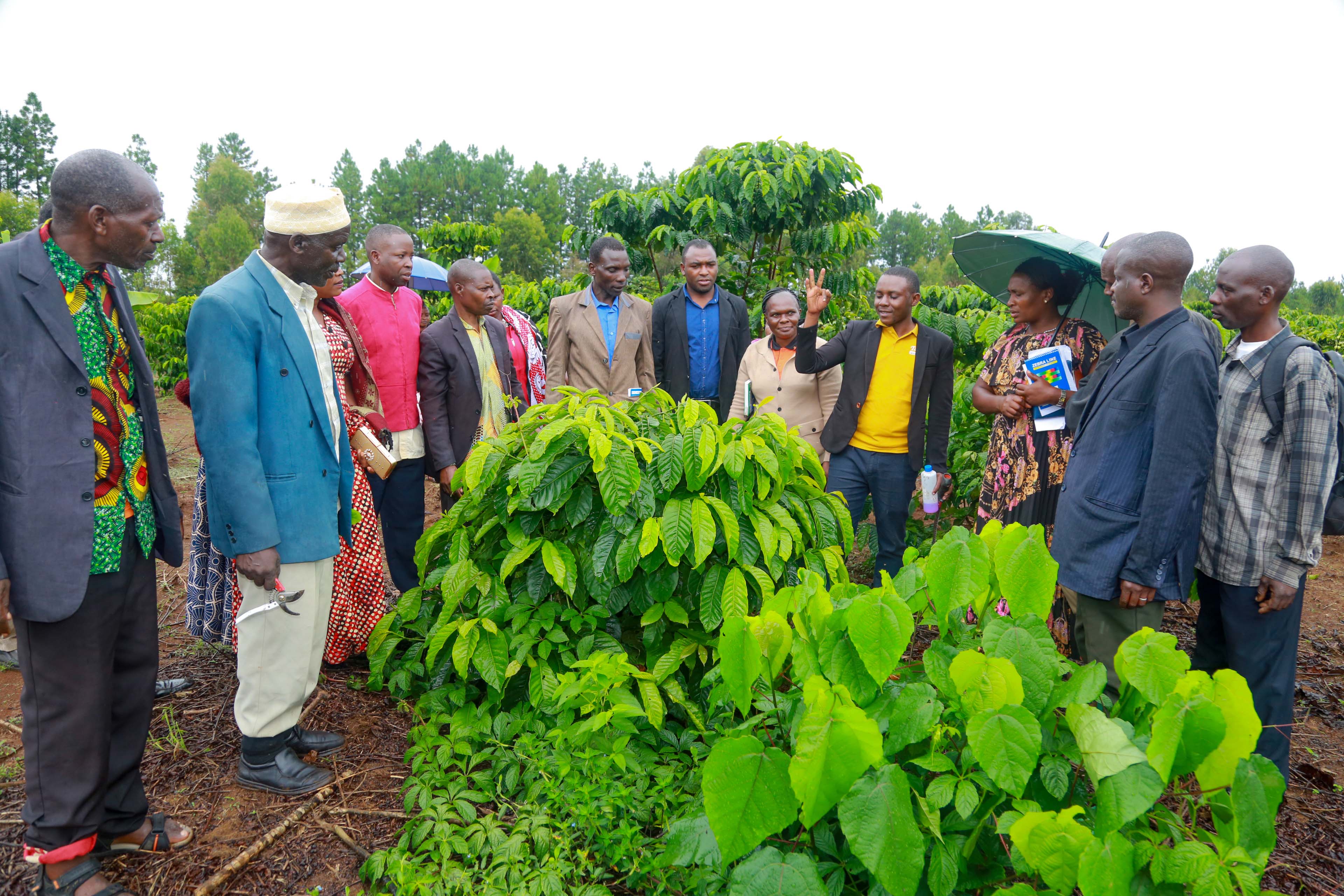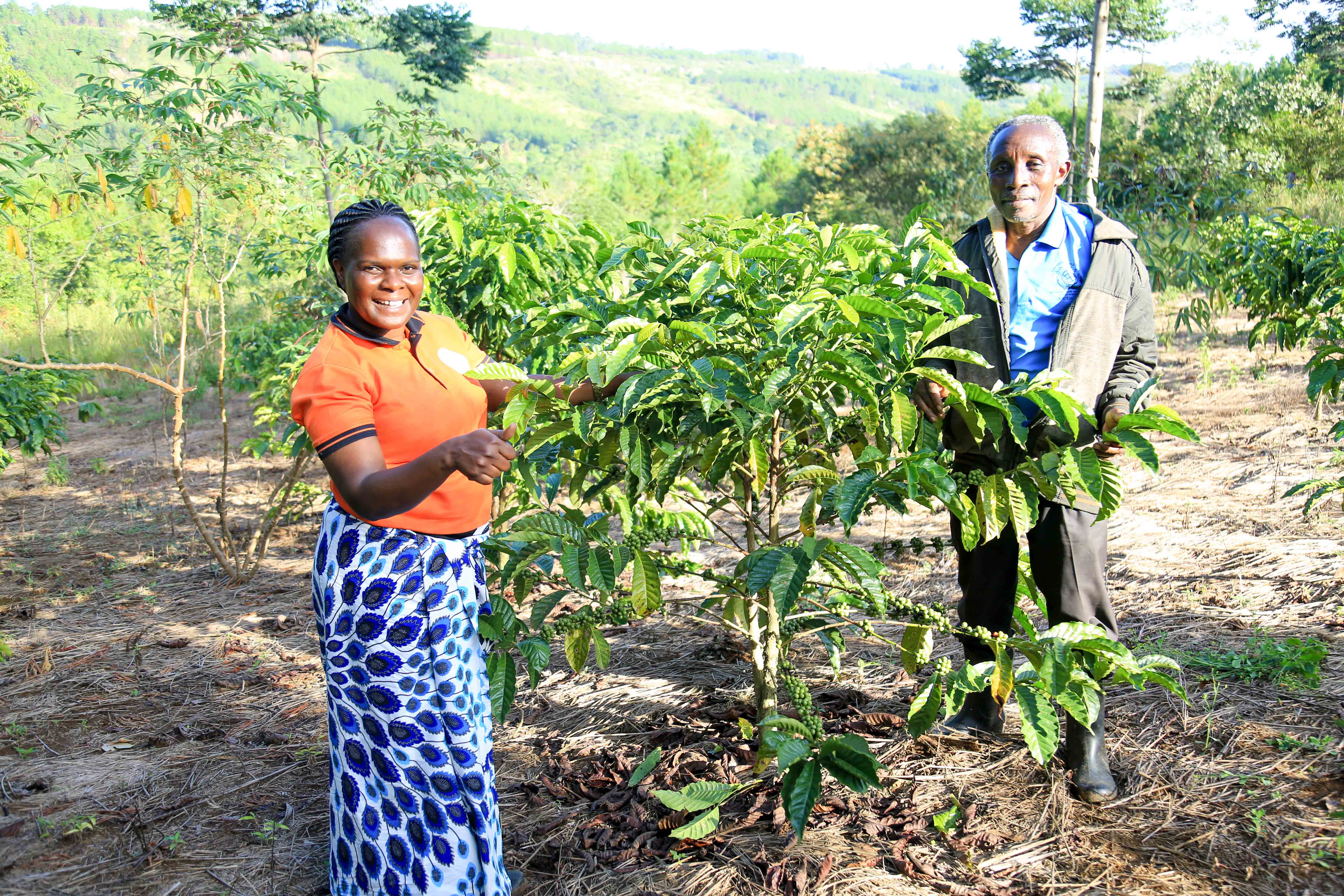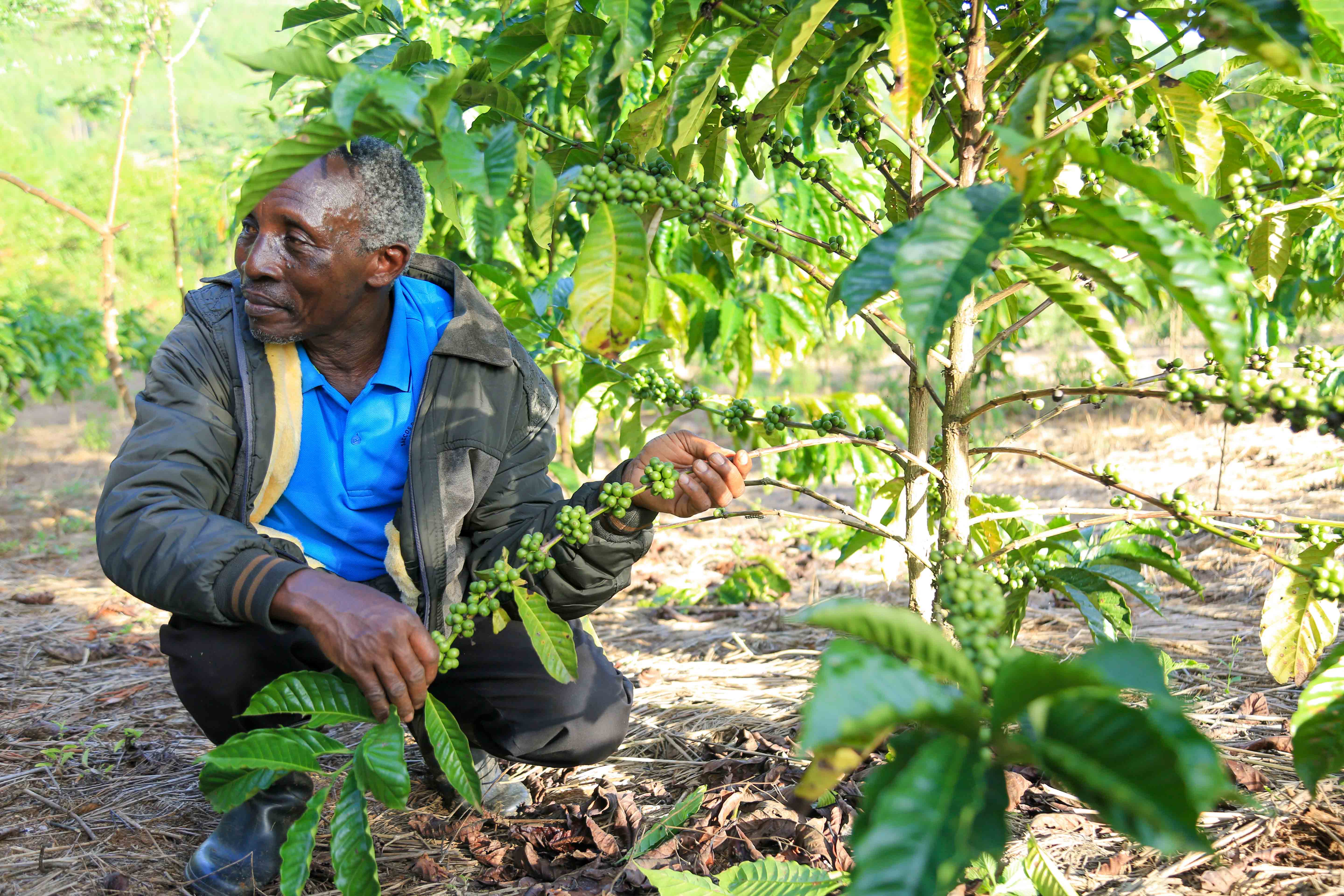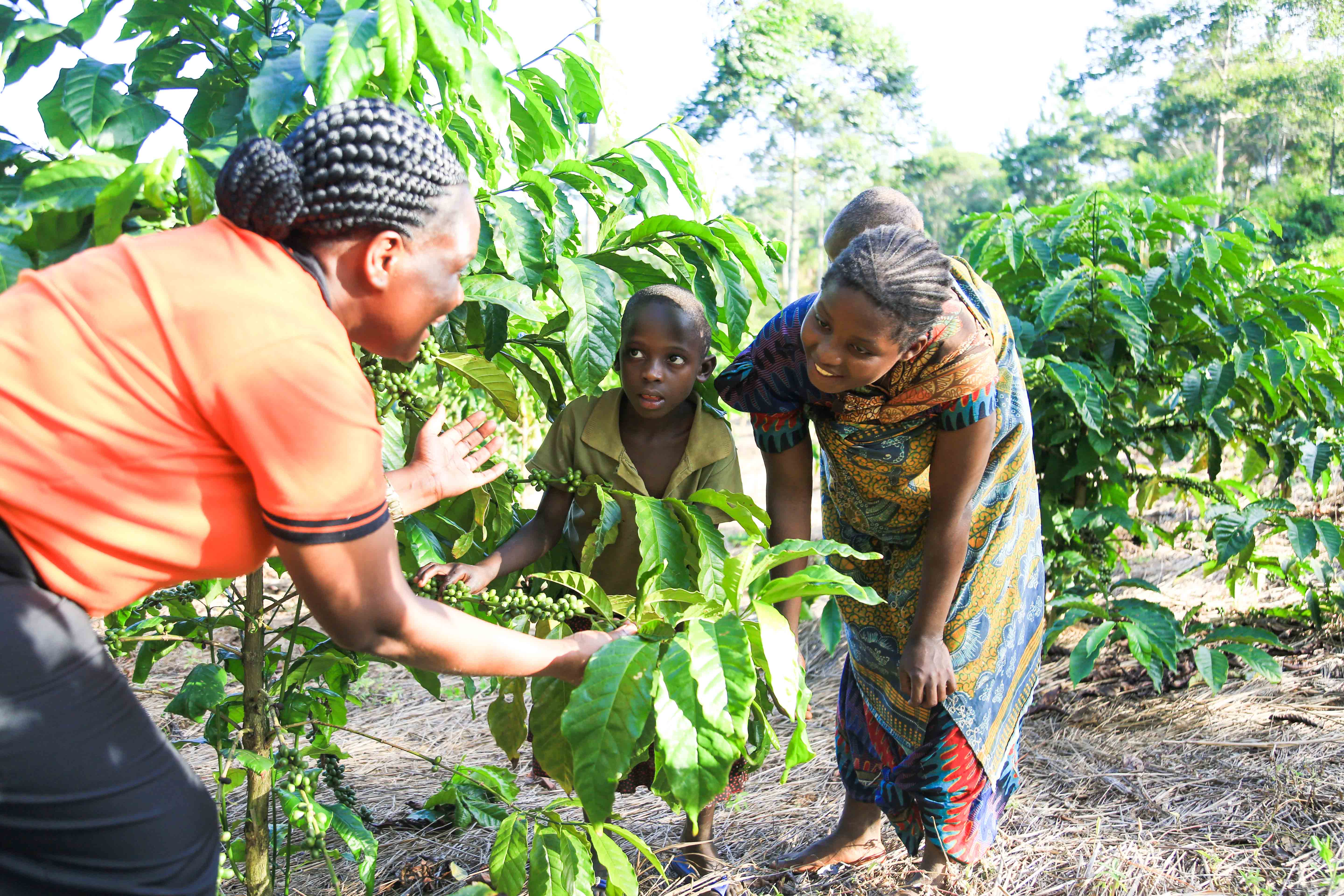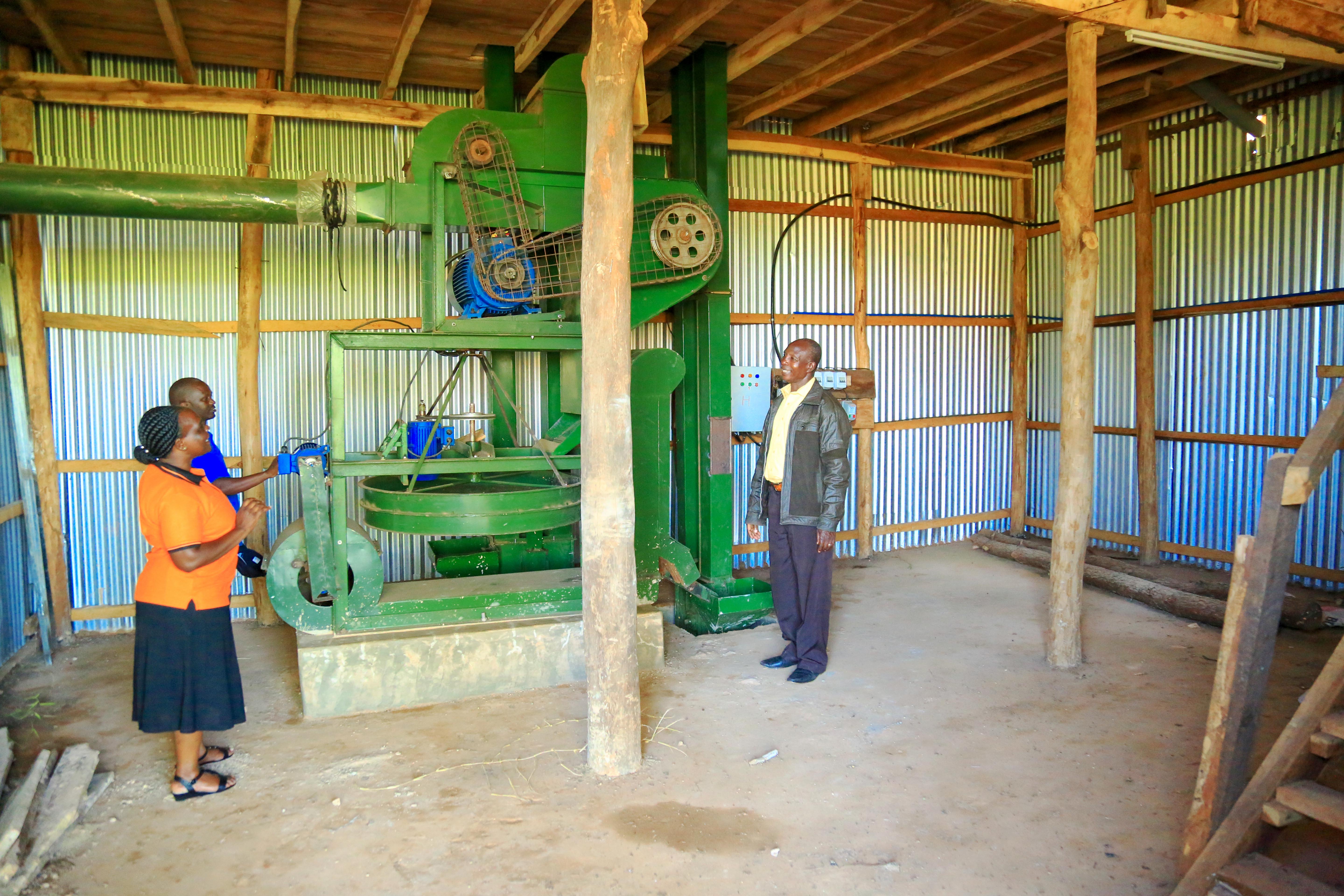-
-
Call us for more details!
-
KST Address
P.O. Box 1236, Bukoba - Tz
KOLCAFE PROJECT - (2005 To-Date)
KOLCAFE PROJECT - (2005 To-Date)


IKolcafe or Kolping Coffee, is a project which was initiated in the year 2010 by Kolping Tanzania as part of its strategic initiatives to bring about holistic development to its members and the communities they live in.
With the support from Brother and Sister in Need (BSIN) based in Innsbruck Austria the initial project was carried out in Nyamuhunga village covering over 1,700 people.
The Kolping Society of Tanzania started the Kolcafe Project as an innovative scaling up measure following successful experiences with small holder farmers in the field of food security. The project was also conceived to respond to the Tanzania’s political history, the harsh realities of farmers’ lives, and dynamics of the international coffee industry over the past 20 years which have resulted in a situation where the coffee business of small farmers in the Kagera Region of North Western Tanzania to be significantly underperforming compared to its potential. The majority of the region’s population is comprised of smallholder subsistence farmers living in villages with no power. Virtually all farmers grow coffee as the primary cash crop and most have, for many years, sold their raw product to the high cost coffee cooperative associations.
The objective of the project is to improve livelihoods of coffee smallholder farmers in the Nyamuhunga, Busharankolo and Bwira villages in Bukoba and Muleba Districts by increasing their income through improved coffee cultivation as well as processing and marketing of the coffee in a cooperative.Through these projects almost 3,400 beneficiaries (Direct and Indirect beneficiaries) who are small scale farmers have improved their livelihood.
In order to achieve its objectives, the following activities have been carried out.
Training on Good Agronomic Practices and Coffee Production
In order to change the communities, education is of paramount importance. Therefore the project carries out seminars on best agronomic practices especially on coffee crop management. As a result 85% of all farmers are practicing best agronomic practices in their farms. For example, they are pruning their coffee at the right time by using proper pruning tools, they harvest quality coffee, rejuvenate their coffee, making and apply compost manure as well as mulching their fieldsDuring FGD and in interviews, the farmers acknowledged the contribution of the trainings received from the project in application of Good Agronomic Practices that has influenced the positive changes in terms of increased productivity not only in coffee but also in other crops which results in increased income due to improved quality but also the fields / farms remain clean due to application of mulches.The use of Farmer Field Facilitators, formation of various committees (marketing, agriculture and livestock) and providing them with intensive training on their roles and responsibilities ensures the continuity of the project even after the closeout.
Provision of Farm Inputs:
With the aim of supporting the most vulnerable beneficiaries, a variety of Farm Inputs were provided by the program some of which included:-Animal Manure, pruning tools like pruning saws. Animal manure was purchased and distributed to 120 farmers in different quantities. Already all farmers have been trained on how to make and apply compost in their fields. As a result, more than 230 farmers are making and applying compost, their fields have been improved and harvests increased thus leading to improved livelihood. For instance, they have improved their houses, paying for their medical charges and extension of their coffee fields.
In the project villages, each household at least own a livestock, However, cattle, sheep and goats are not kept indoors, so most of the manure are lost in the fields while grazing. Therefore, by introducing the Manure Based Compost component, the farmers had manure to incorporate in the compositing material. The manure provided by the project was to supplement to the little manure had from their animals to apply to coffee fields. Disadvantaged households from the project point of view meant those households with no livestock at all and these were 50 households (17% of the total beneficiaries) who were provided with goats. The project has so far distributed a total of 20 cows for 20 households and over 90 goats to 45 households – 2 goats per household.
The project has enabled acquisition of 2 Coffee hulling and grading machines which sort and grade coffee according to its quality. Before the coffee is received for storage at the selling collection centre, it should be sorted after hulling to remove the small remaining poor quality beans which is done in the best way by women manually. The labour charge for sorting is normaly paid by the farmer who brings coffee at the centre, for this case, at least 50 women & youth in each of the three villages will be employed for the two months of harvest season coffee sorting. In addition, the logistics involved in transporting coffee to the village hulling station has offered more employment to the youth.
The Project marketing and loan repayment strategies demand that all participating farmers be SACCOS members so in the first year each village will acquire a SACCOS with at least 300 members. Today there are several very small, informal savings groups in most villages. The presence of a professionally-staffed and operated SACCOS will have a significant positive “ripple effect†across the community, well beyond management of coffee-related product and revenue accounting.
SACCOS has been a stepping stone for farmers, especially as it helps them to borrow and get affordable loans with low interest rate when compared to other financial institutions which provide loan services. More benefits are realized when they will start selling together, when a farmer requires money to solve her/his emergency need, no coffee will be sold to the middle man as the money will be obtained from their SACCOS and when they will sell together, the borrowed amount (loan) will be deducted automatically and the farmer are paid the balance. This makes the concept of selling collectively successful. The establishment of SACCOS and installation of the hulling and grading plant within the project area gives assurance and confidence to farmers to continue improving and expanding their coffee farms.
The project has registered some achievements and Achievements and ImpactWomen have been given the priority and they are equally involved in decision making. They make up over 60% of the membership and leadership in the supported groups.
KST collaborates with the district authorities and keeps the district authorities informed of the activities being implemented in the villages and their projects continue even after the close of the project.The Kagera local government seeing the work of KST also joined hands by providing 17,500 coffee seedlings to the project. Normal price for a good coffee seedling is TZS 200 for that matter it means the local government in terms of cash contributed TZS 3,500,000. Moreover, the local government contributed through facilitation process of registration of SACCOS, the coffee growers association as well as the certification process for organic coffee.
Un intended benefits were also registered as Non project participants indicated that there has been a positive change in the respective villages especially with the installation of hulling and grading machine Nayamuhunga and Kasharu villages and now Bwira where Kolcafe 3 is taking place. In setting up the hulling and grading machine the project had to pay for the installation of 3 phase transformer in the village, which can enable to run different machineries in the village. The installed transformer has led to establishment of various businesses in the village which utilize electricity; these include barber shops, carpentry workshop, welding workshops, ladies saloons and stationeries. This in one way or another it has created employment to a number of people in the village as well prevented the rural urban migration especially of youthsThe project managed to achieve all the intended objectives as per project proposal.
The major contributing factor to the success of the project was the commitment of the project team, the willingness of the beneficiaries to participate in the project activities, the good cooperation from stakeholders but above all the financial support received from BSIN. Brother and Sister in Need (BSIN), foundation of the Diocese of Innsbruck (Austria) and the Autonomous Province of Bozen (Italy)
Participation and ownership
The project team involved very well all stakeholders especially from the Government authorities including the agriculture, cooperative and research departments all stages of the project. Also business people involved in coffee value chain were involved in one way or another to ensure the project achieves the intended objectives.
The project intervention was relevant as it has great contribution to the Sustainable Development Goals or Global Goal which are designed to be blueprint to achieve a better and more sustainable future for all. Out of the 17 interlinked global goals – the project has contribution to 5 goals namely:
Goal No 1 - No poverty
Goal No 2 – Zero hunger
Goal No 3 – Good health and well being
Goal No 5 – Gender Equality
Goal No 12 – Responsible Consumption and Production
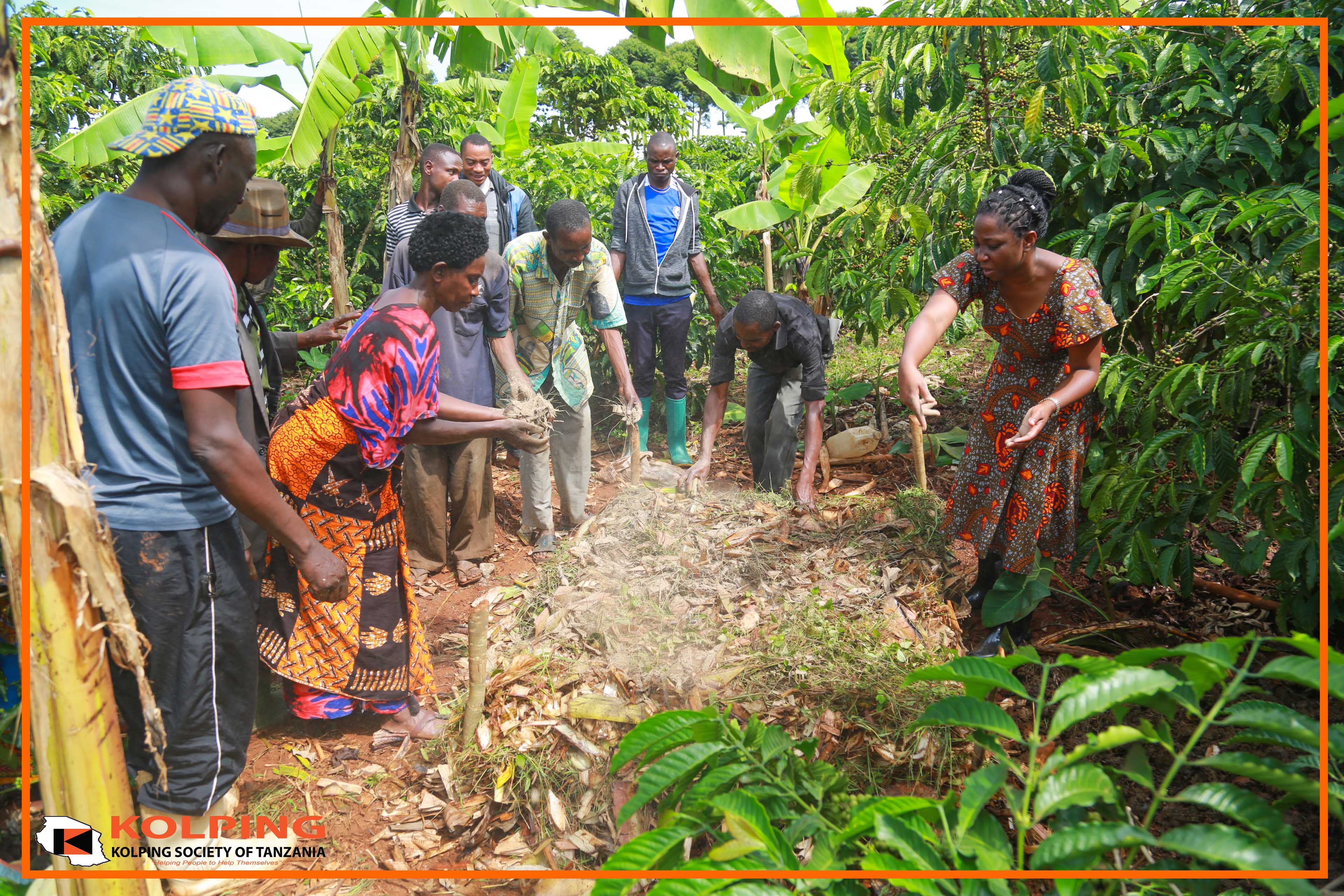
Compost manue making training
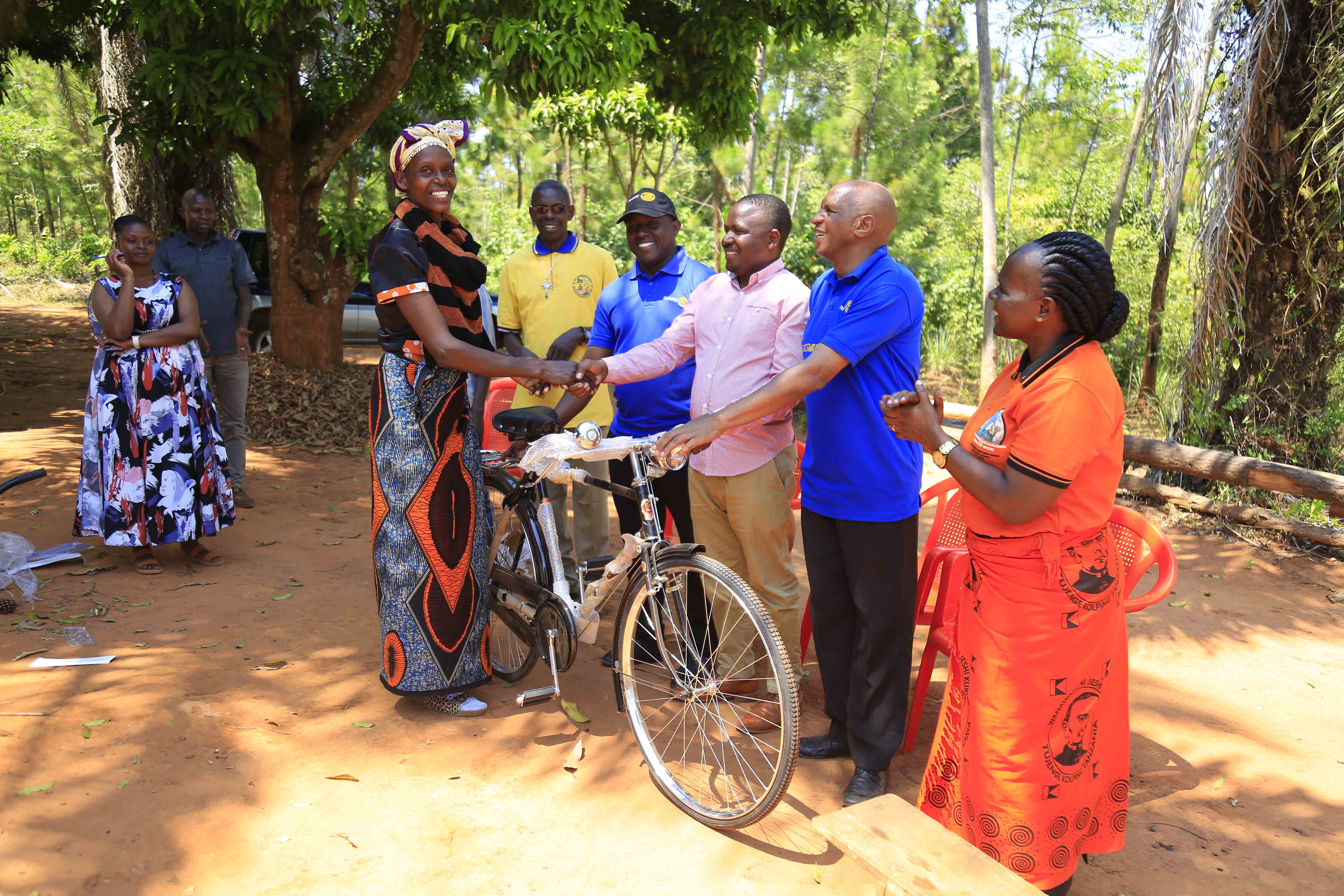
Empowering progress in the Kolcafe project: Providing bicycles to streamline monitoring efforts, ensuring efficient and accessible transportation for the dedicated women driving positive change in their communities.

